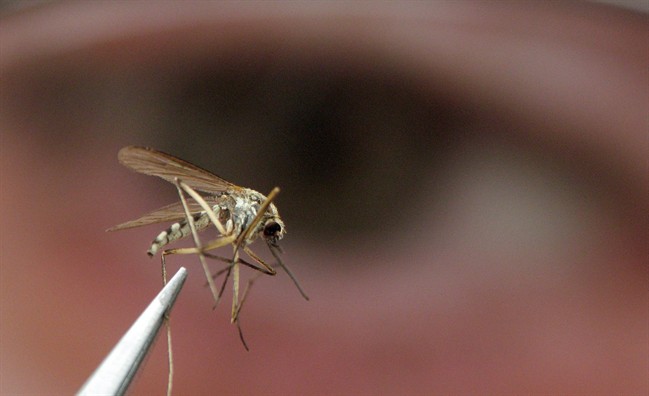Toronto Public Health is encouraging residents to take precautions after lab-tested mosquitoes were found to carry the West Nile virus for the first time this year.

So far in 2017, no one in Toronto has been infected with the virus, the agency says, but there were 19 confirmed cases of West Nile last year.
“While the risk of becoming infected with West Nile Virus in Toronto is low, now is a good time to remind residents of the ways they can protect themselves from mosquito bites and help reduce the risk of infection,” Dr. Eileen de Villa, Toronto’s Medical Officer of Health, said in a media release.
To prevent possible mosquito bites, the agency recommends wearing insect repellent, covering up while outdoors and wearing light-coloured clothing. Peak times for mosquito bites are dusk and dawn.
At home, public health says to remove standing water where mosquitoes may breed from your property and install well-fitted screens on windows and doors.
The federal government says symptoms of West Nile can appear within two to 15 days of being bitten by an infected mosquito, though 70 to 80 per cent of those infected feel no symptoms.
Mild symptoms include fever, head and body aches, a mild rash and swollen lymph glands. In fewer than one per cent of cases, the virus causes severe symptoms and the brain and spinal cord can be affected.
To monitor and test for the virus, Toronto Public Health sets 40 mosquito traps across the city once a week from mid-June to mid-September.
City catch basins are also treated with larvicide to curb mosquito populations.








Comments